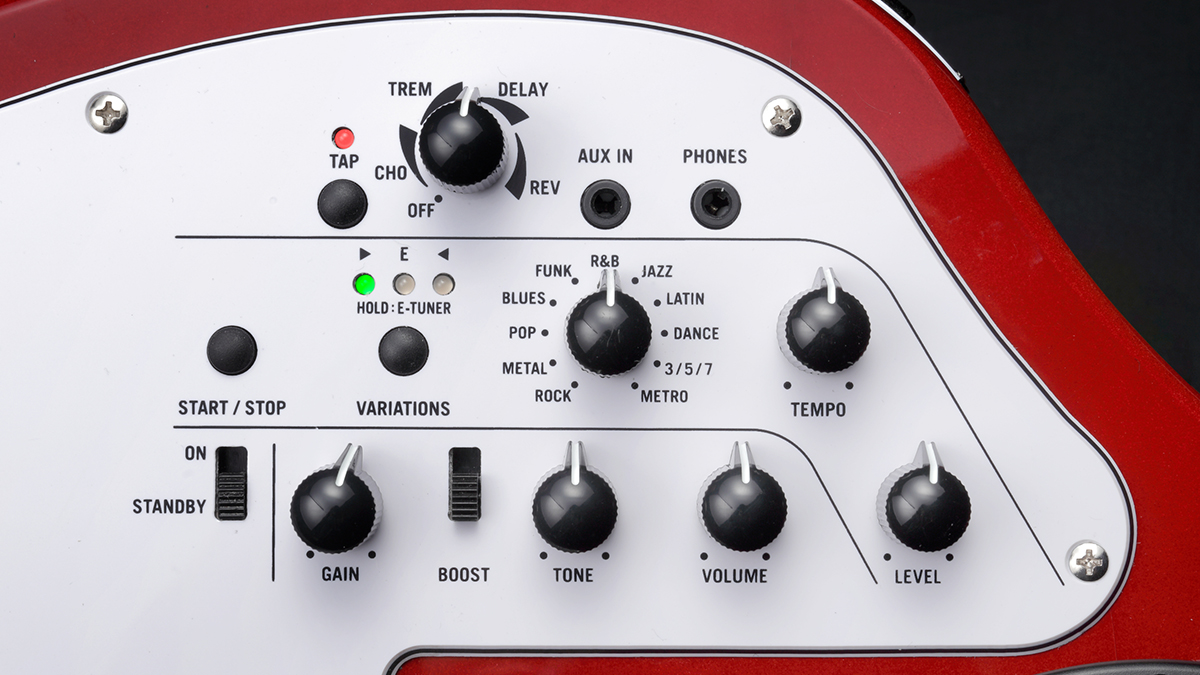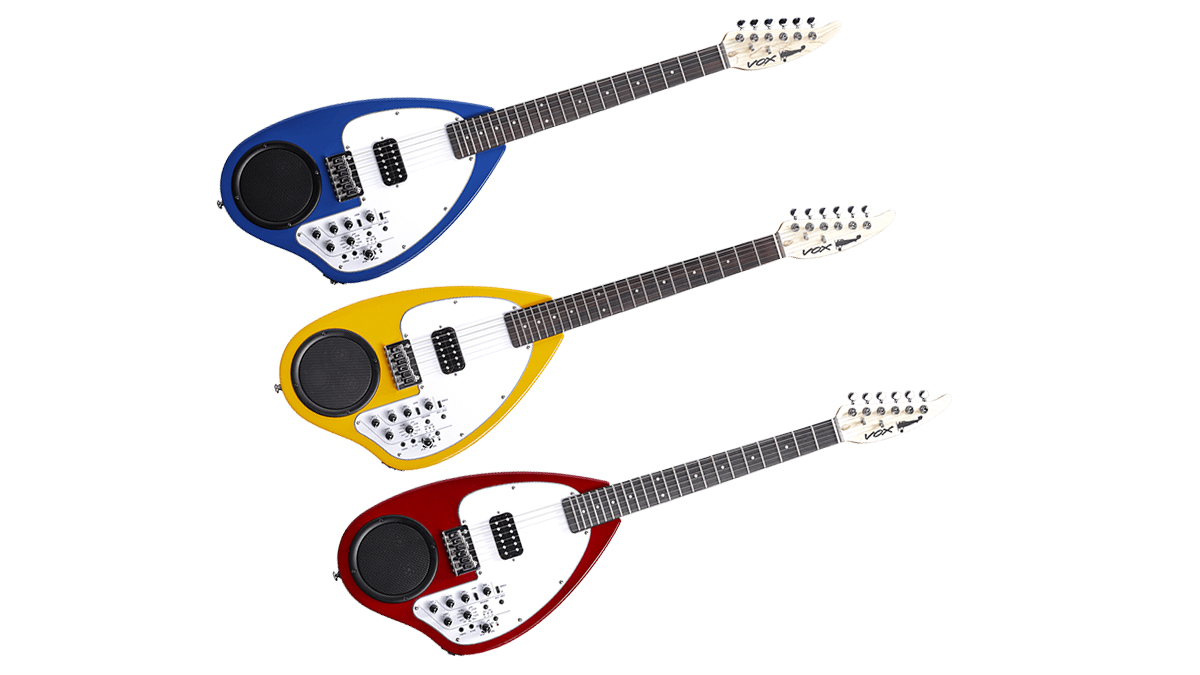NAMM 2024: “This isn’t just a guitar; it’s an all-encompassing musical companion” - Vox’s APC-1 has a built-in amp, speaker and rhythms, and its pushing all our retrofuturistic buttons
If you’d designed ‘the guitar of the future’ back in the ‘60s, it might have looked something like this
NAMM 2024: A guitar with a built-in speaker might sound like a bit of a gimmick, but Vox has really leant into the ‘do it all with one instrument’ idea by equipping its new APC-1 with 33 built-in rhythm patterns as well.
Given all that, this new travel guitar’s ‘60s-inspired, ‘quasi-futuristic’ design seems strangely in keeping. Retrofuturism at its best, we say - it’s the kind of thing you might see George Jetson playing after a day of button-pushing at the office.
This is no toy, though: the APC-1 has a Tectonic audio wide-directional speaker and passive radiator for “superior sound quality”. Isolation mourning is said to minimise the chances of feedback, and you can spruce up the tone with chorus, tremolo, delay and reverb effects.

Those 33 rhythm patterns we mentioned, meanwhile, are spread across 11 genres, so your solo jams can reach into the worlds of rock, metal, R&B, pop, jazz and more (there’s even an ‘Odd’ preset, which has to be worth a listen). Both the analogue circuit amp and rhythm machine are powered by Vox’s Mini Go digital modelling technology.
Whether the APC-1 will ever be considered as anything other than a novelty remains to be seen, but we’ve already got a soft spot for it. Whether that will translate into a purchase, we’re not sure - we don’t know how much the instrument will cost yet, as it won’t be released until July. That does at least give us time to decide on our favourite colour option, though - the APC-1 will be available in orange, blue and red.
Stay in the loop on the Vox website.

Want all the hottest music and gear news, reviews, deals, features and more, direct to your inbox? Sign up here.



I’m the Deputy Editor of MusicRadar, having worked on the site since its launch in 2007. I previously spent eight years working on our sister magazine, Computer Music. I’ve been playing the piano, gigging in bands and failing to finish tracks at home for more than 30 years, 24 of which I’ve also spent writing about music and the ever-changing technology used to make it.